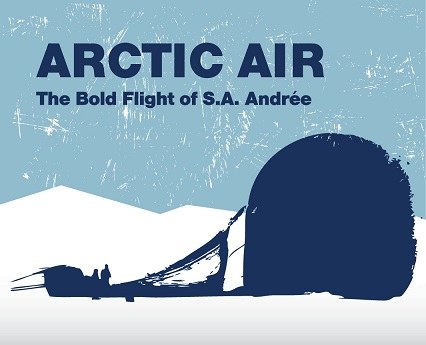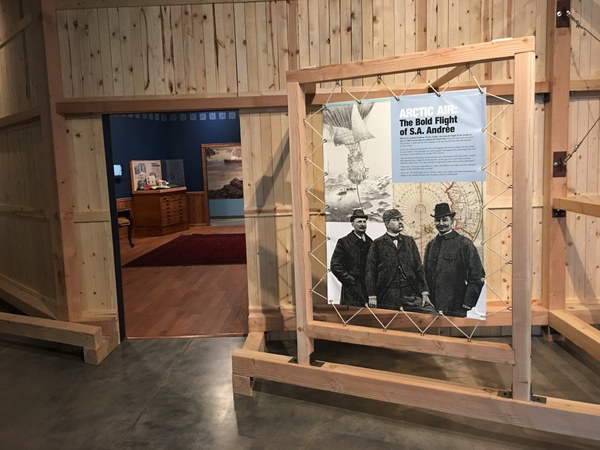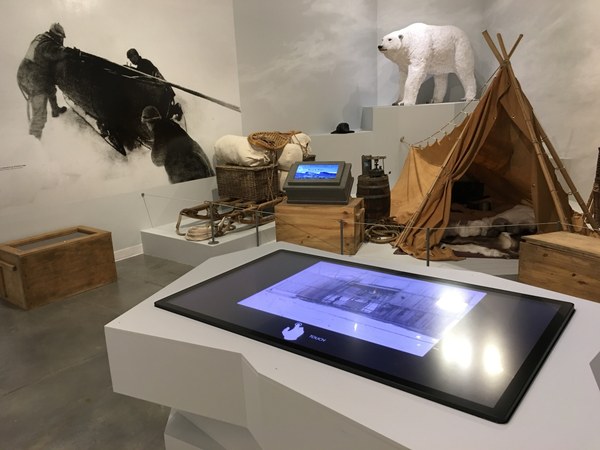Arctic Air: The Bold Flight of S.A. Andrée
This major special exhibition chronicles the unprecedented attempt in 1897 to reach the North Pole by balloon.

When the bold flight of S.A. Andrée began on July 11, 1897, no one had yet reached the North Pole. There had been other attempts, all unsuccessful, but this expedition intended to fly there by balloon from Danes Island, an icy outpost at nearly the top of the world.
This dramatic and often misunderstood story is the subject of the Anderson Abruzzo Albuquerque International Balloon Museum's newly opened special exhibition, "Arctic Air: The Bold Flight of S.A. Andrée."
His balloon, which was named Örnen (Eagle), and the expedition as a whole was well equipped and supported by technology that was innovative or state-of-the-art for the time.
Andrée had also designed, tested, and installed a combination of balloon steering systems – sails and guide ropes – that were intended to influence their direction and altitude.
About the Exhibition

"Arctic Air" explores the history and technology of the expedition, and it delves into who these explorers were, their experiences in the Arctic, the people in their lives at home, and the motivation for such a journey.
Journals of the crew, as well as photographs taken on the journey, tell a detailed story, one that the Balloon Museum presents in an immersive display.
The façade of the exhibition is a replica of the pre-fabricated balloon house, or hangar, that Andrée transported from Sweden and assembled on Danes Island in 1896.
An interior portion of the replica balloon house forms one of the exhibition's galleries. Another is designed to look like a late-19th Century parlor, while the third simulates an Arctic camp used by Andrée and the two men who joined him on the flight, Nils Strindberg and Knut Fraenkel.

This gallery of Arctic Air depicts the expedition's camp. It also shows the multi-media design of the exhibition. It includes interactive touchscreens, videos, photographs, text panels, artifacts, newspapers, and replica items such as the Polar Bear seen here.
Take a virtual tour of this exhibit, part of the Virtual Tour Tidbits series, available on YouTube.
